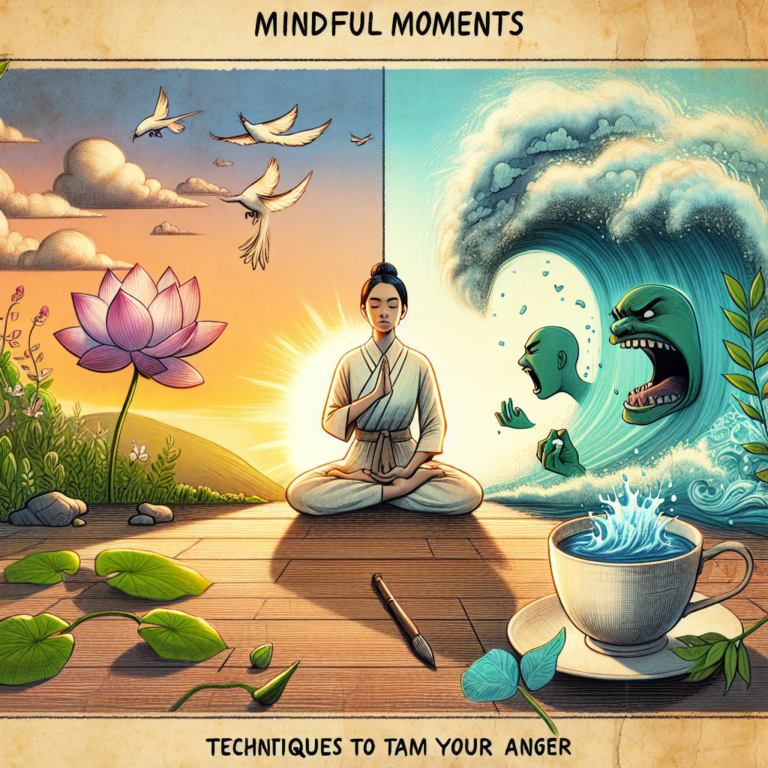
Sleep Deprived Minds: Understanding the Link Between Insomnia and Mental Disorders
Introduction
In an age where hustle culture reigns supreme, many wear sleep deprivation as a badge of honor. Yet, beneath the surface lies a darker reality that threatens individual well-being—an intricate relationship between insomnia and various mental disorders. Sleep Deprived Minds: Understanding the Link Between Insomnia and Mental Disorders sheds light on this crucial connection. This article will explore how disrupted sleep patterns influence mental health, revealing the importance of adequate rest for emotional and psychological resilience.
Our exploration will include compelling case studies, insightful statistics, and science-backed analyses, ultimately providing you with actionable insights to promote better sleep and mental well-being. By the end of this journey, you will not only grasp the depth of this issue but also feel empowered to make positive changes in your life or the lives of those around you.
The Importance of Sleep
The Biological Necessity of Sleep
Sleep is not merely a luxury; it’s a biological necessity. The National Sleep Foundation suggests adults require an average of 7 to 9 hours of sleep per night. Sleep serves numerous essential functions that go beyond simply recharging our energy. It aids in memory consolidation, emotional regulation, and even physical health maintenance.
However, life’s demands often push sleep down on our priority list. With long hours at work, the pressures of daily life, and the allure of screens, many find themselves caught in a cycle of insomnia. Understanding this cycle is key to breaking it.
The Mechanics of Sleep and Mental Health
Sleep is governed by complex mechanisms involving the circadian rhythm, neurotransmitters, and hormonal balances. Sleep deprivation disrupts these processes, leading to cognitive impairments, emotional volatility, and increased susceptibility to various mental health disorders. It becomes imperative to acknowledge that Sleep Deprived Minds: Understanding the Link Between Insomnia and Mental Disorders is not just about sleepless nights; it’s about the cascading effects on our mental state.
Insomnia: A Gateway to Mental Health Issues
What is Insomnia?
Insomnia is classified as a sleep disorder characterized by persistent difficulty in falling asleep or staying asleep, even when a person has the opportunity to sleep. This disorder can lead to chronic sleeplessness, impacting both physical and mental health.
Case Study: Sarah’s Struggle with Insomnia
Sarah, a 29-year-old marketing executive, experienced insomnia for over two years, primarily triggered by workplace stress and looming deadlines. Her inability to fall asleep compounded her anxiety, resulting in an overwhelming sense of dread every morning. As time went on, Sarah began to experience mood swings and isolated herself from friends, leading to depressive symptoms.
Upon seeking counseling and learning about sleep hygiene practices, Sarah discovered mindfulness and relaxation techniques that ultimately helped her regain control over her sleep. This case illustrates one of many instances where insomnia acted as a catalyst for mental health deterioration.
The Cycle of Insomnia and Mental Disorders
The relationship between insomnia and mental disorders often perpetuates a vicious cycle. Mental disorders like anxiety and depression can cause insomnia, while lack of sleep can exacerbate these disorders. This cyclical pattern illustrates the importance of addressing both sleep and mental health concurrently.
Table 1: Common Mental Disorders Linked to Insomnia
| Mental Disorder | Prevalence in Insomniacs | Symptoms Linked to Sleep Deprivation |
|---|---|---|
| Depression | 80% | Irritability, loss of concentration, persistent sadness |
| Anxiety Disorders | 70% | Excessive worry, panic attacks, restlessness |
| Bipolar Disorder | 60% | Extreme mood swings, energy fluctuations |
| PTSD | 65% | Nightmares, intrusive thoughts, hypervigilance |
| Schizophrenia | 50% | Cognitive disturbances, emotional flatness |
This table underscores the importance of recognizing the interplay between sleep and these disorders, emphasizing the need for comprehensive treatment approaches.
The Science Behind Sleep Deprivation and Mental Health
Neurotransmitters and Sleep
Neurotransmitters are chemicals that transmit signals in the brain and greatly influence how we feel and think. Major neurotransmitters involved in sleep include:
- Serotonin: Influences mood and sleep-wake cycles.
- Cortisol: Stress hormone that can increase with sleep deprivation.
- Dopamine: Plays a role in mood regulation and can impact sleep cycles.
Disruption to these neurotransmitter balances can cause or exacerbate mental health issues, illustrating the importance of Sleep Deprived Minds: Understanding the Link Between Insomnia and Mental Disorders in fostering better overall health.
Hormonal Disruptions
Sleep deprivation also affects hormones like melatonin, which regulates sleep patterns, and ghrelin and leptin, which control hunger. As metabolic processes are affected, individuals may experience increased stress and anxiety, further aggravating existing mental health conditions.
Treatment Options: Breaking the Cycle
Cognitive Behavioral Therapy for Insomnia (CBT-I)
Cognitive Behavioral Therapy for Insomnia (CBT-I) has emerged as a highly effective treatment for chronic insomnia. By focusing on changing thoughts and behaviors related to sleep, CBT-I helps break the cycle of insomnia and its associated mental health consequences.
Case Study: Mark’s Journey Through CBT-I
Mark, a 35-year-old father of two, struggled with insomnia stemming from post-traumatic stress disorder (PTSD) after serving overseas. Through CBT-I, he learned strategies to manage his thoughts, creating a relaxed bedtime routine that eventually improved both his sleep quality and mental health. Sharing personal insights, Mark stated, "It wasn’t just about getting more sleep; it was about reclaiming my mental space."
Mindfulness and Relaxation Techniques
Practices such as mindfulness meditation, yoga, and deep-breathing exercises have shown promise in improving sleep quality and reducing symptoms of anxiety and depression. Incorporating these practices into daily routines can help develop a healthier relationship with sleep and mental well-being.
The Role of Lifestyle Changes
Building a Sleep-Conducive Environment
Creating an optimal sleep environment is crucial for improving sleep quality. Consider these practices:
- Invest in Quality Bedding: Comfort plays a significant role in achieving restful sleep.
- Limit Screen Time Before Bed: The blue light emitted by screens can disrupt melatonin production.
- Establish a Routine: Going to bed and waking up at the same time helps regulate the body’s internal clock.
Nutrition and Sleep
Diet plays an essential role in sleep quality. Foods rich in magnesium, tryptophan, and omega-3 fatty acids can aid sleep. Avoiding stimulants like caffeine and sugar before bedtime can also help create a more conducive sleep environment.
Conclusion
The connection between insomnia and mental disorders is undeniable. Sleep Deprived Minds: Understanding the Link Between Insomnia and Mental Disorders emphasizes the necessity of addressing sleep health alongside mental health concerns. Knowledge is empowering, and by understanding the intricate relationship between sleep and mental well-being, individuals can strive to create healthier sleep habits and, in turn, enhance their mental health.
Taking small, actionable steps—whether implementing mindfulness practices, creating a restful sleep environment, or seeking professional help—can transform lives afflicted by sleep deprivation and its mental health repercussions.
FAQ Section
1. What are the primary causes of insomnia?
Insomnia can be caused by a variety of factors, including stress, anxiety, depression, medical conditions, medications, and lifestyle choices.
2. How does insomnia affect mental health?
Insomnia can exacerbate symptoms of mental disorders such as anxiety and depression, leading to a cycle of poor sleep and increased psychological distress.
3. Can sleep disorders be treated effectively?
Yes, treatments such as cognitive behavioral therapy for insomnia (CBT-I), mindfulness, lifestyle changes, and medication can effectively help manage sleep disorders.
4. Is insomnia more common in certain age groups?
While insomnia can affect individuals of all ages, it tends to be more prevalent among older adults due to changes in sleep patterns and health conditions.
5. How can I improve my sleep hygiene?
Improving sleep hygiene can include establishing a consistent sleep schedule, creating a comfortable sleep environment, limiting screen time before bed, and avoiding stimulants close to bedtime.
By taking proactive steps in understanding and addressing both sleep deprivation and mental health, we can foster a brighter, more restful future for ourselves and those around us.















